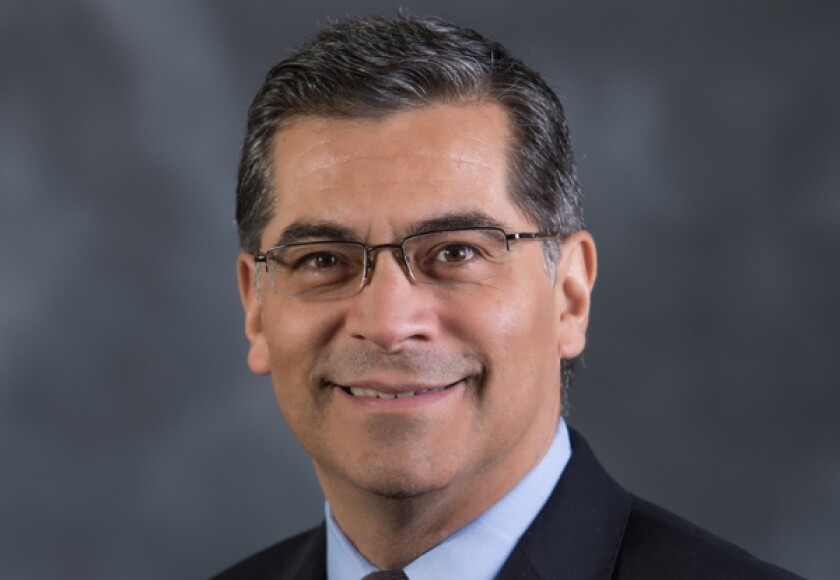Xavier Becerra has made a name as a champion of access to medicine during his almost-four years as head of California's justice department.
The attorney general, who took on his role in January 2017 after now Vice President-elect Kamala Harris left for the US Senate, was the driving force behind seminal anti-pay-for-delay legislation in California in 2019, to the frustration of both innovator and generic drug makers.
In an exclusive interview with Managing IP, he says that the only people who really benefitted from pay-for-delay agreements, when an innovator pays a generic not to manufacture a particular product for a period of time, were the drug makers.
“The innovators don’t mind sharing some of the profits they make from longer exclusivity with the generics, and the generics don’t mind because they can still make money without lifting a finger,” he says.
“Those kinds of agreements are good for the companies, but not for consumers of those medications, partly because competition is the best way to secure more innovation.”
He adds that now his department has passed Assembly Bill 824 and fought off a challenge from the Association for Accessible Medicines in the Court of Appeals for the Ninth Circuit, it should be easier to uncover pay-for-delay deals and disincentivise new ones.
COVID consumer champion
It shouldn’t come as a surprise, then, that since the pandemic, and now that a vaccine is closer, Becerra’s focus has turned to ensuring broad consumer access to COVID-related therapeutics. With this goal, he says, he will aim to achieve help from the new federal government in 2021.
The attorney general infuriated intellectual property counsel in August when he and Louisiana counterpart Jeff Landry sent a letter signed by 32 other attorney generals demanding that the government march in against Gilead, the maker of the COVID-19 drug remdesivir.
Becerra says he sent the letter because it was clear they needed to do something to promote competition and transparency in this instance. The drug had $70 million of federal support and Gilead was charging more than $3,000 a course when the manufacturing cost was $1 to $12.
“California is the home to so much IP and it was really important for us to see innovation helping our communities,” he says. “It seemed that the market was not working in this case and that competition and transparency were not driving the development and distribution of remdesivir.”
The letter has so far failed to compel the federal government into action, but Becerra hopes his department has turned a corner now Joe Biden has been elected.
“Hopefully what we’ll do is we’ll have a partner in the federal government from January 20 2021 who will also want to hear from Gilead about what they are doing to make their product more available to the many Americans who need it,” he says.
“It will really help if we have a federal partner that’s actually willing to help us find out what Gilead is doing with its federal funding.”
Watching Warp Speed
The public-private partnership arrangement, initiated by the Trump administration, was set up to enable and accelerate the development, manufacture and distribution of COVID vaccines, therapeutics and diagnostics.
“I signalled our plans before, but we are going to be monitoring Operation Warp Speed and making sure the vaccine will be distributed and priced fairly so it can reach everyone who needs one,” says Becerra.
“We obviously haven’t had as much success in getting our federal government to partner with us on remdesivir, and we’re concerned with Operation Warp Speed, but we’re going to continue pushing to get some transparency out of Gilead and the federal government.”
He adds that monitoring includes looking at how patents are being used – as well as every other aspect of the development, sale and distribution of a vaccine, from start to finish.
“We’re not interested in tilting the playing field one way or another,” he says. “We just want to make sure there is a clear path so the best team will win.”
Beyond COVID monitoring, Becerra's department plans to continue pushing for competitive markets, he says. He notes that as California is the driver of so much IP, his team will do everything it can to protect that IP because every time infringement or theft occurs, the state is affected economically.
The attorney general says he hopes to have a federal partner in that effort too, as well as for all his other IP-related endeavours.











